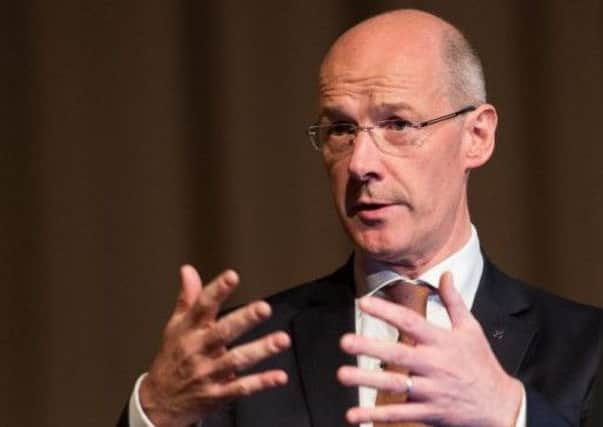Andrew Wilson: £4bn hit is an awful lot of money


An impressive man, he later told a fellow airline passenger, “Oh, I never said that. A newspaper fella misquoted me once, and I thought it sounded so good that I never bothered to deny it.” Lesson there.
The billions in question this week amounted to 27. The fiscal forecasting boost from the Office for Budget Responsibility was an early Christmas present for the wily Chancellor Osborne. That must have been one very boring letter to Santa.
Advertisement
Hide AdAdvertisement
Hide AdIt was also a remarkable change from only months earlier. Much of it justified – I am sure – by factors like the Bank of England’s forecasts and therefore expected decisions being wrong and revised. That’s the tribulations of trying to foresee the future in numbers.
Elsewhere their changes to forecasting VAT and National Insurance created £6 billion more for the Chancellor by 2020. Running a small business, I would love such model changes to be achievable in my world. They aren’t.
It was a salutary lesson for all who follow the public finances. Especially important for our parliamentarians in Holyrood as they reflect on how governance should improve to receive the new financial responsibilities devolving following the Smith Agreement of last year.
The man charged to steward the Scottish budget is, of course, Deputy First Minister John Swinney. He is a rare beast in politics in that few, if any, anywhere, would question his vocation, integrity and human decency. I can attest to that from my own long experiences with him through good times and bad. He goes the extra mile, for everyone it seems.
Rarer still in that my friends in the Imperial Capital tell me that even the Treasury’s Permanent Secretary, Nicholas MacPherson, holds him in high regard. Given the rearguard action being fought on devolution that takes some doing. The Treasury never likes to let go.
Politics will rightly swirl and challenge and hold the whole Sturgeon team to account. Thank goodness for that. But the realities of the financial times we live in also need politics to broker the sort of inter-generational reforms that must live beyond the partisan divide. Without that our collective interests will founder.
Consider the numbers: the windfall found its way through to Scotland’s revenue budget. Interestingly, the total Scottish budget this year is around £27bn, the precise amount of the total OBR “windfall”.
It will now rise by around £250m in total next year. That’s welcome, of course. But does the government really have room to manoeuvre?
Advertisement
Hide AdAdvertisement
Hide AdThe health consequentials through the Barnett formula grew by £400m. It would be a brave government that didn’t pass them straight to the NHS. It ought not to be like that, but it is. This means that on this vignette alone the rest of the budget sees a £150m hit. The boost to police spending in England will drive a similar pressure.
In fact over the next four years it will take a cumulative hit of £4bn. That is an awful lot of money.
Then the pay increase announced for England was 1 per cent for the public sector. It would similarly surprise me if Scotland didn’t at least match that deal from the Conservatives. If we assume pay is around 60 per cent of the Scottish budget that alone is another £160m.
Given the scale of the problem, the idea that the solution could come from smacking a higher tax bill on an ever-tinier number of rich people, just because we can, would be tokenistic politics to rival the risible Shadow Chancellor and his Little Red Book. It would also be self-defeating.
Consider the top rate of tax. The Scottish Parliament’s research team suggest the much-vaunted 5p hike could gain up to £35m assuming behaviour didn’t change. Assuming that is implemented next year we would plug barely 2 per cent of the gap. But if merely one in nine of those taxpayers change their behaviour in where they live or how they take their income we lose money. Worth the risk?
The days of Scotland’s politics being dominated by self-indulgent, emblematic, non-solutions have to be over or poor people will suffer in large numbers.
We need two big themes to dominate our thinking, all of us.
First how do we grow the tax base in terms of numbers of people earning and how much they earn. That is the way to grow revenue sustainably.
Advertisement
Hide AdAdvertisement
Hide AdSecond, we need to take the opportunity to fundamentally redesign what government does and how to make it fit for the realities all parties will face in power for decades.
Easy choices in the short term destroy public services and therefore human welfare in the long term.